It was dusk when we arrived in Taw Ku Mu Der. Basking in the golden light of the setting sun, the village located in a valley in Karen State’s mountainous Papun District (or Mutraw, as it is known in Karen) was majestic. Yet, devoid of human presence, only ominous silence remained. Gone were the carefree sounds of children playing, parents chatting on their porches, and farmers washing after a hard day in the fields. Only a handful of animals remained. A few chickens pecking for food under a hut, a goat wandering between houses and a lonely grey cat crouched on a veranda were the only remaining signs of life.
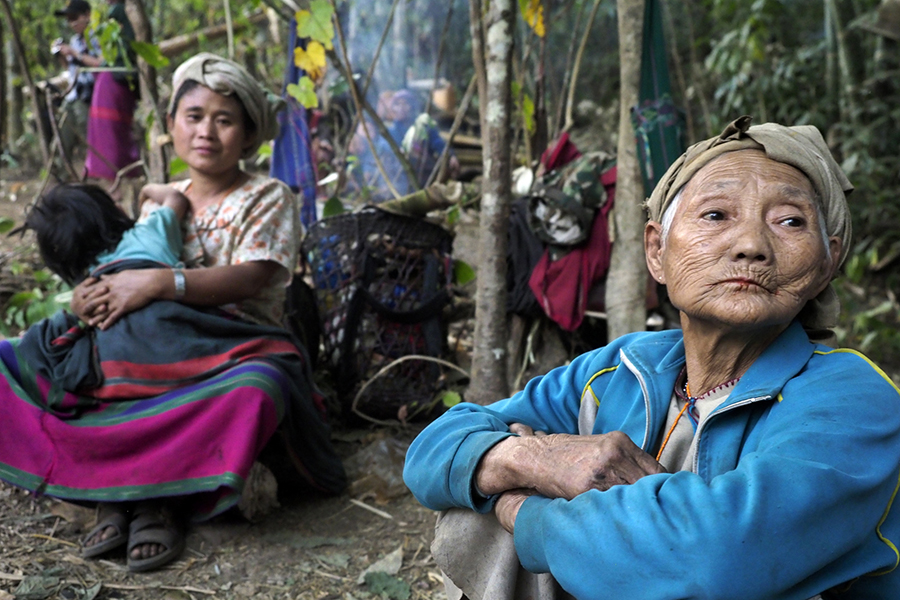
Ten days earlier, the people of Taw Ku Mu Der fled into the night. They were running from the Tatmadaw (Myanmar Army) after large numbers of troops were deployed in Lu Thaw Township without warning. Many fled with just the clothes on their backs and a small bundle of possessions.
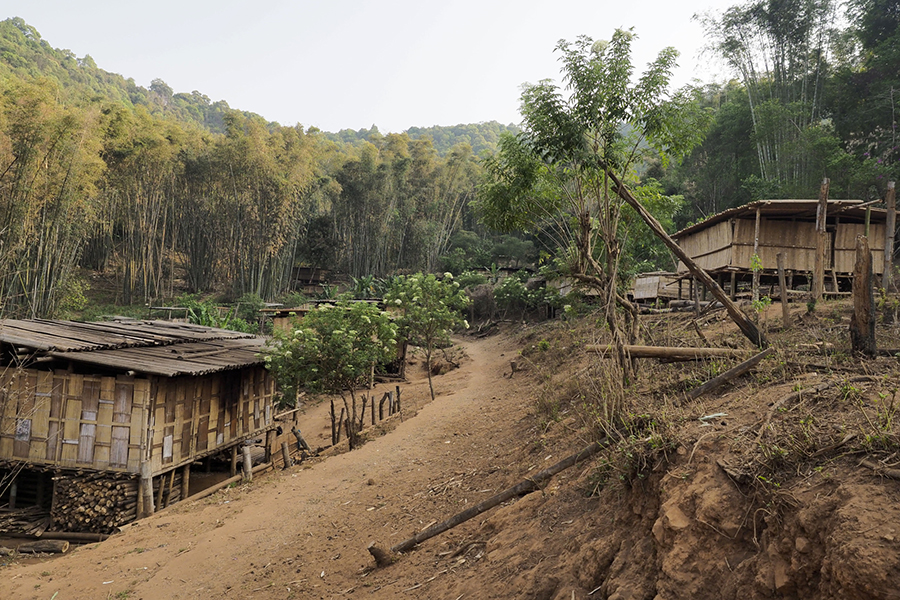
Six battalions have been deployed into Lu Thaw Township, with orders to secure the area to expand a military road that has been abandoned since 2012. The military road will carve a swath through the forests and lands of local communities, to connect two Tatmadaw mountain bases.
“The Tatmadaw have changed their tactics and have a very solid strategy to build a military operations road to make it easier to connect their bases, and transport military supplies,” said Saw Robin Moo, the Karen National Union (KNU) secretary of Papun District.
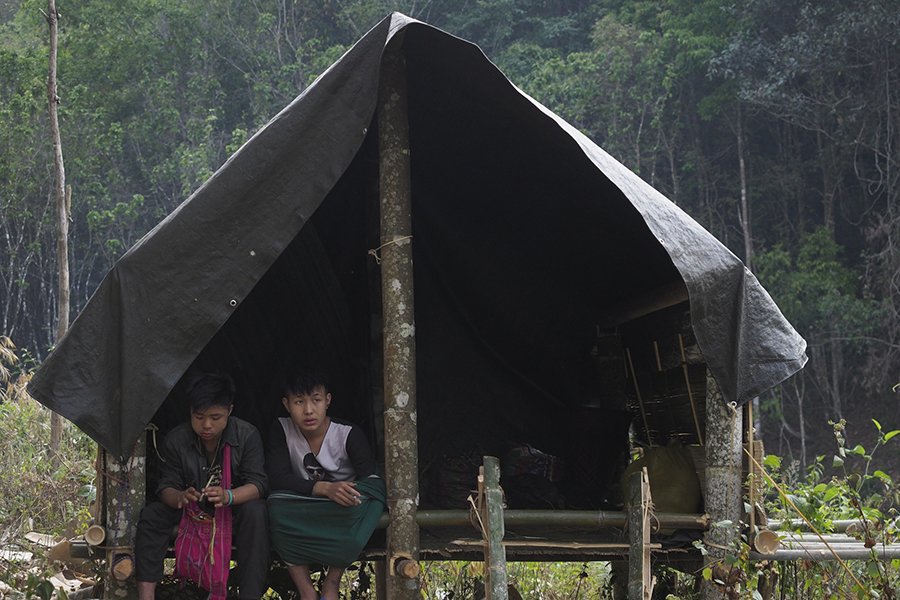
The Tatmadaw violated the terms of the 2015 Nationwide Ceasefire Agreement (NCA) by moving troops into this area and firing first, Karen National Liberation Army (KNLA) Brigade 5 leaders said. Since the Tatmadaw crossed the ceasefire line in early March, armed clashes between their troops and the KNLA have intensified, with battles now occurring daily as Karen troops seek to defend their territory. The KNLA’s political wing, the KNU, signed the NCA with the Tatmadaw, the Union government and seven other groups on Oct. 15, 2015.
The current fighting in Papun has displaced more than 2,000 people from 11 villages located in areas close to the military road. An additional 600 people from five villages have made preparations to flee as a result of the mounting instability. So far, these military operations have caused the largest civilian displacement in Karen State since September 2016, when more than 5,000 people were forced from their homes after the Tatmadaw’s Border Guard Force seized control of the Mae Tha Waw road.
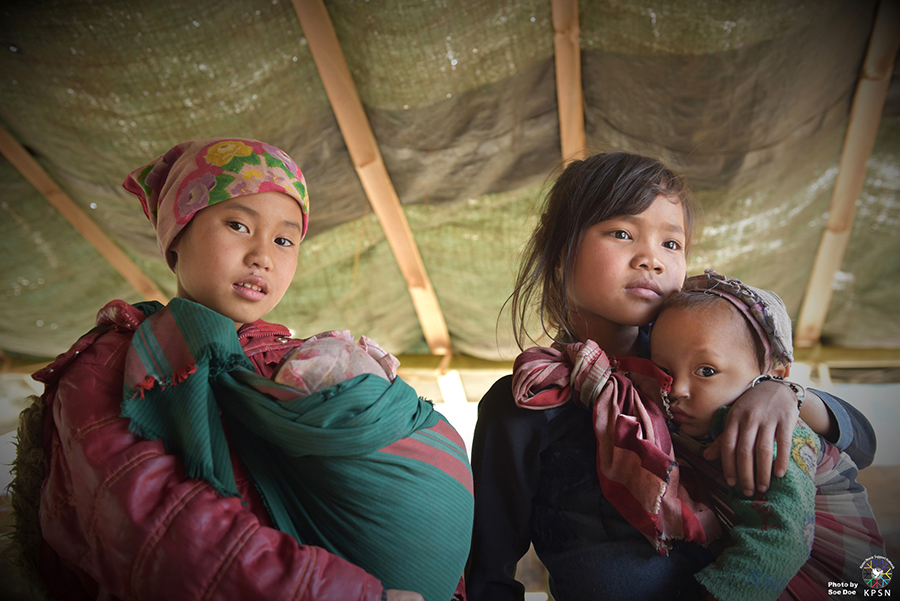
Since the 2012 bilateral ceasefire between the Myanmar army and the KNU, people have been investing their trust in the ceasefire and hoping for lasting peace after decades of fighting. Yet the recent armed clashes and renewed conflict in Papun District has eroded this fragile trust.
On a mountainside, an hour from Taw Ku Mu Der, villagers were busy preparing their evening meal at a makeshift camp. Dogs and several kittens meandered around their feet anticipating food droppings. Four families camped together, while others set up their own small camps in the forest, locations determined by the direction they fled when the fighting began.
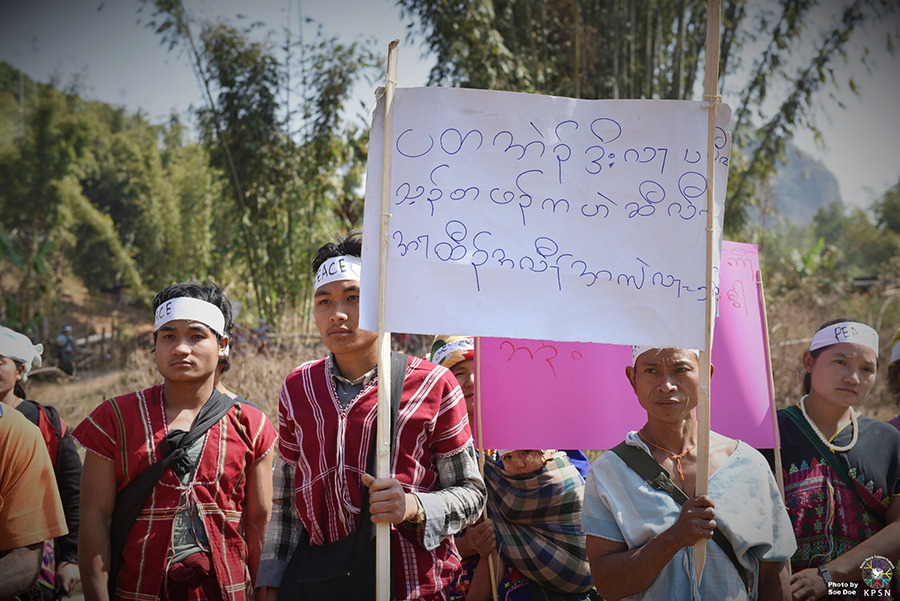
Since Taw Ku Mu Der was abandoned, villagers have been returning, periodically, to collect precious possessions. Large bags of rice have been stacked on the downward trail leading to the camp.
As night fell, the temperature became frigid and villagers huddled around a fire to keep warm, talking before retiring to bed.
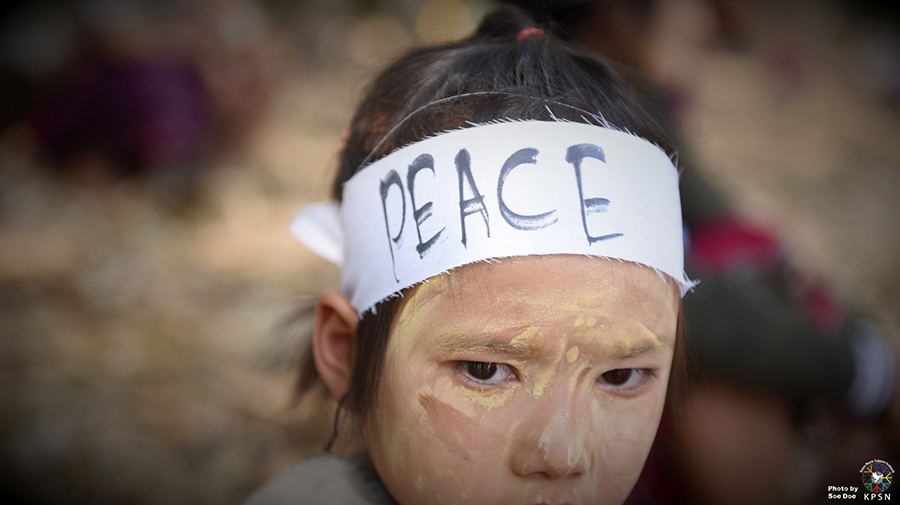
“We are waiting for the Myanmar army to leave the area,” said 60-year-old Saw Bu Kwae from Boh Nar Der village, also displaced by fighting. His village is located just three minutes walk from the proposed military road.
“We see a lot more troops coming into the area, so we just have to prepare for our food and we (keep) moving a little further (away from the soldiers),” Bu Kwae explained. Weighing heavy on his mind is if he can get back to plough his fields before the planting season starts in early May.
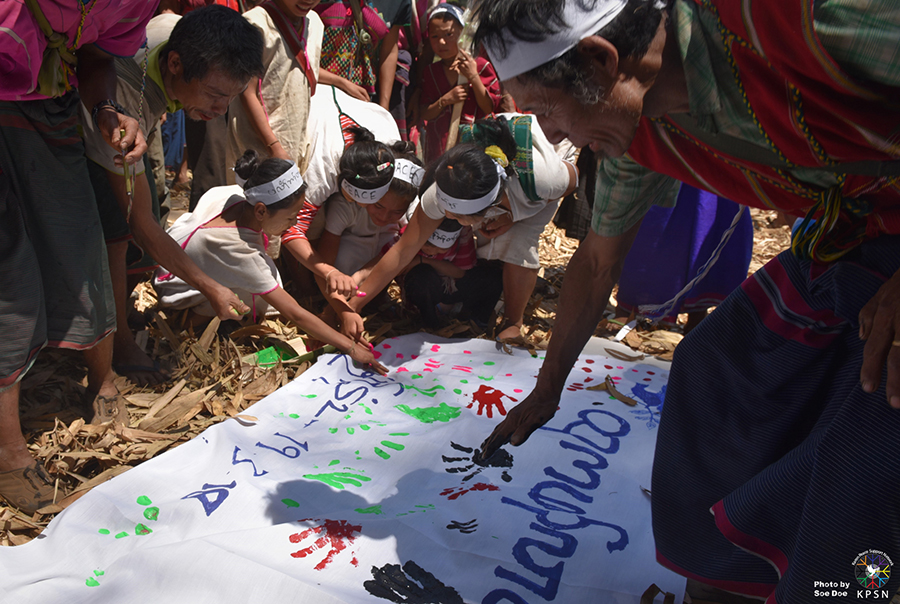
The recent return to conflict has been a recurring concern that has marked much of Saw Bu Kwae’s life. Many of his friends were tortured or killed by the Tatmadaw in the wake of its brutal Four Cuts Policy. During this time, Tatmadaw troops shot their water buffaloes, and, unable to plough their fields, they faced food insecurity, recounted Saw Bu Kwae
As villagers, we have no power to stop the fighting, he said.
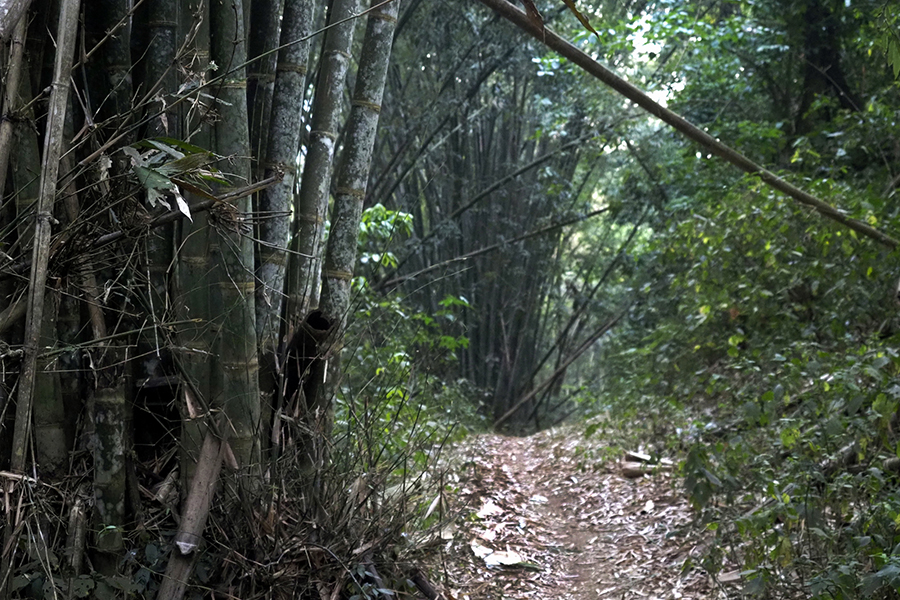
“I just want our KNU leaders to talk to the NLD (National League for Democracy) government to work out real peace,” he said.















